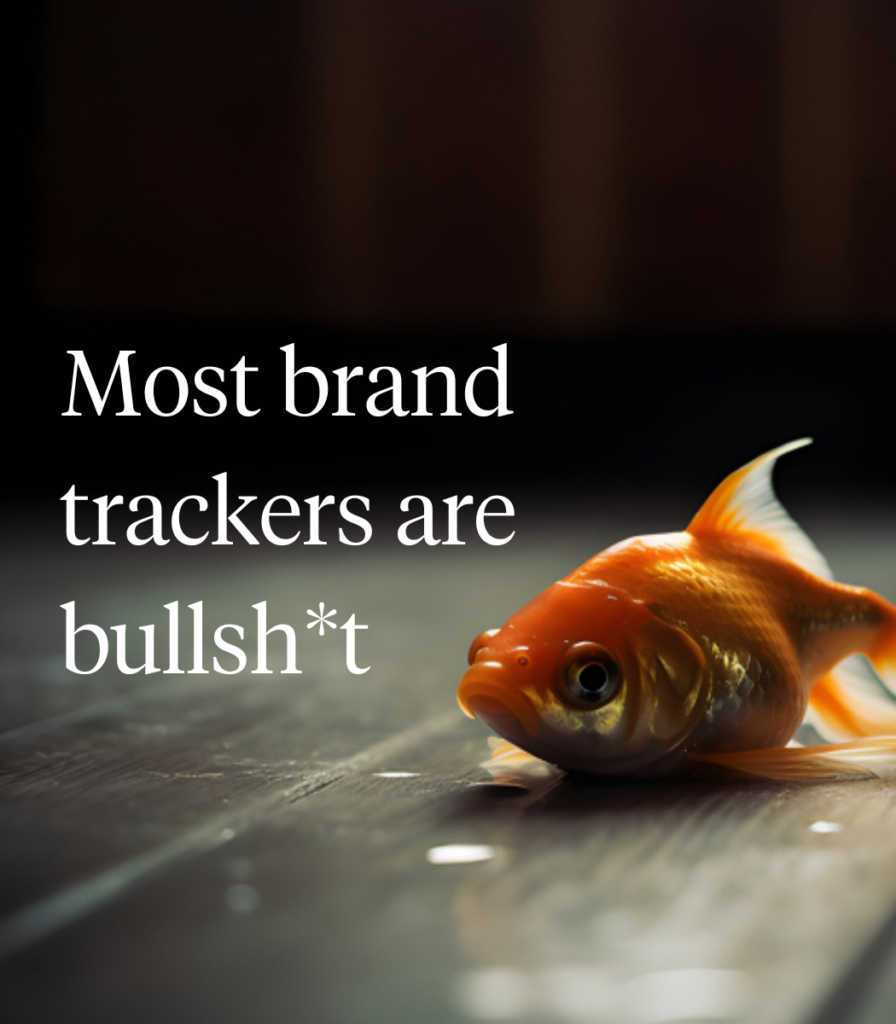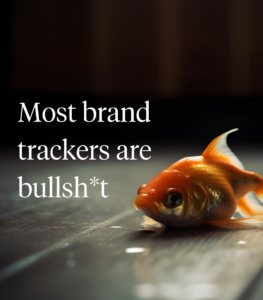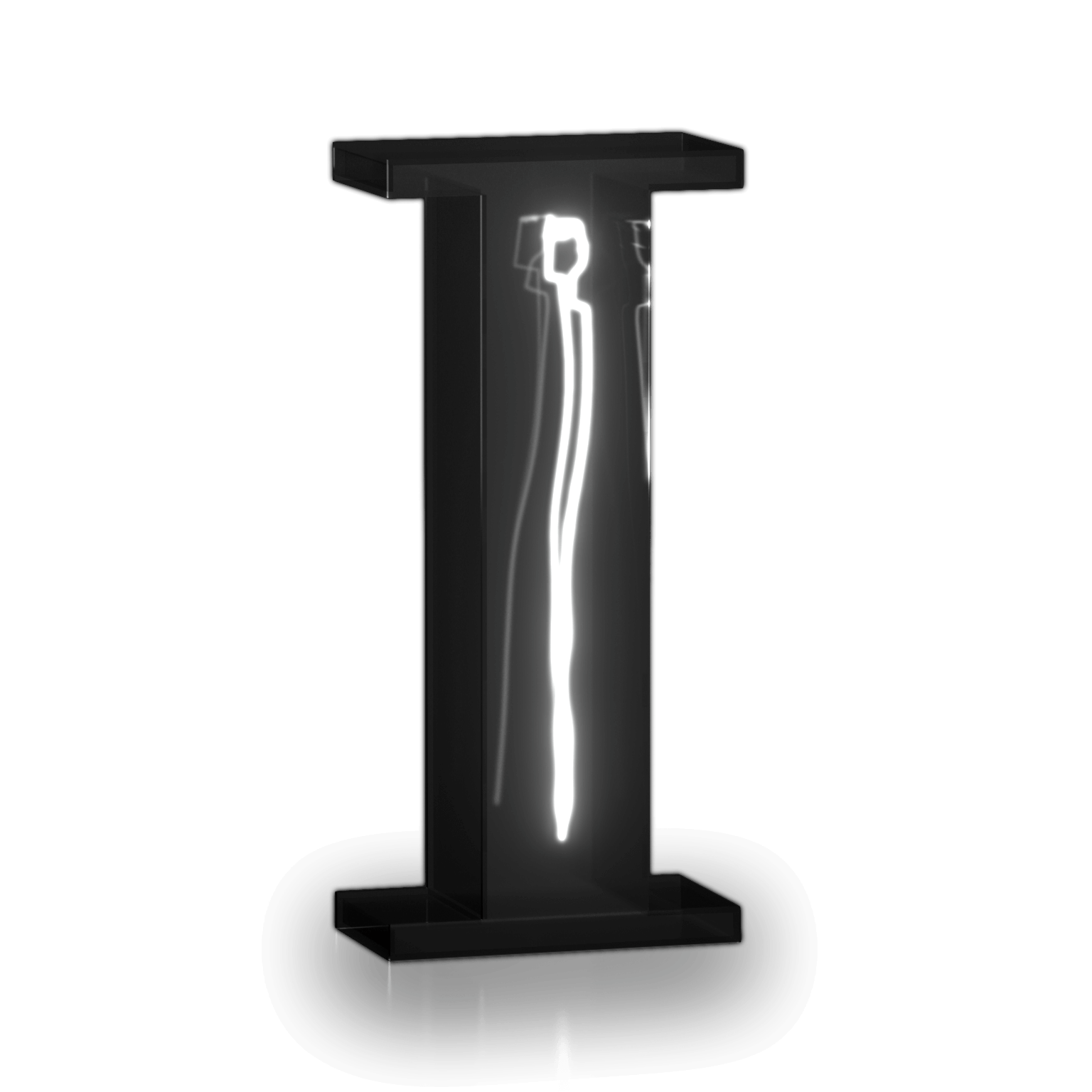How to choose a brand tracking agency
What to look for, what to avoid, and how to get more from your brand tracking research
Brand trackers can be a powerful competitive advantage. Or they can be a bloated dashboard that gets ignored.
The difference? Not the data itself, but who helps you turn it into action.
Whether you are looking to track brand equity, test the impact of new campaigns, realize a new sales target, or understand what your audience really thinks, the right brand tracking agency can make or break your strategy.
But with hundreds of options out there, how do you know which one is right for you?
Here’s our guide to finding a brand tracking partner that works as hard as your team does.
First: get clear on your goals
Before you even start looking for a partner, you need to get aligned internally. What are you trying to achieve? What decisions will this tracker support? And who needs to see the results?
Brand tracking should serve a real purpose. That might be growing market share, increasing revenue, improving retention, or boosting wallet share. Or it might be supporting talent goals, such as tracking perception among potential hires.
Set clear objectives from the start. For example:
- Are you looking to link brand perception directly to commercial performance?
- Are you measuring long-term brand equity to guide strategic investment?
- Do you want to track the impact of a new campaign or product launch?
- Are you testing brand messaging with new audiences or in new markets?
- Are you identifying perception gaps that affect recruitment or loyalty?
Involve your stakeholders early. If marketing, brand, insights and leadership all expect different outcomes, it’s going to be a problem later on.
What to consider in brand tracking agency comparison
Most agencies will say they do brand tracking. But not all of them build it to deliver real business value.
From always-on global brand tracking to campaign-specific insights, here’s what sets great agencies apart.
1. Built from scratch
Every brand, sector, and market is different. But too often, brand trackers rely on recycled frameworks and pre-set templates.
The best brand tracking agencies build your program from the ground up. They start with the strategy you’ve painstakingly put together. They design for your category. And they actually measure the levers that drive brand growth. That means listening to stakeholders, understanding your customer behavior, auditing past research, and identifying which metrics to keep, drop, or build in for the future.
With your hard-won budget on the line, a tailored brand tracker is not just best practice. It is essential.
For example, what works for a B2B SaaS brand will not work for an independent gaming studio. A good tracking partner builds your program around what actually matters in your world.
If a potential agency shows you an off-the-shelf dashboard in the first meeting, it’s time to run.

2. An outcome-first mindset
You don’t need another agency that explains the data. You need one that tells you what to do with it. One that designs tracking programs that link directly to commercial goals, such as growing market share, improving retention, or boosting conversion. Not just shifts in awareness.
This is where consultancy comes in. Your tracking partner should help you make sense of trends, spot anomalies, benchmark performance, and understand what to do next. Whether that means optimizing a campaign, refining your positioning, or exploring a new segment, the right agency will bring recommendations, not just reports.
If you’re not sure, ask how they have helped other brands respond when the numbers started to shift. If their answer isn’t convincing, it’s probably a sign.
3. Tracking that keeps up
Speed is key to effective brand tracking. If you’re looking at data from three months ago, you’re probably wasting your time.
You need a partner who can move fast, stay aligned with your priorities, and help steer big decisions. The best brand tracking companies are upfront about timelines, reporting cadence, and how they adapt when your strategy shifts.
So, what should you look for? Good partners balance speed with depth. When choosing a brand tracking partner, look for key metrics within a week of fieldwork closing, with deeper analysis close behind. That way, your team gets fast answers and the strategic insight to make the bigger calls.
4. Flexibility to scale and evolve
Over time, your business will change. Your tracker should too.
The best brand tracking agencies design research that can flex and grow alongside your strategy. Whether you are launching new campaigns, entering new markets, or testing new formats, your tracker needs to keep up.
Beware of rigid, set-and-forget systems that are hard to tweak when things shift.
Ask what happens if you rebrand. What if you want to compare different audiences next quarter? Can they adapt the methodology or just the slides?
5. A strong mix of tools
Brand tracking is most powerful when it reflects both what people say and what they do.
The best agencies combine self-reported survey data with behavioral insight, social listening, and AI-enabled big data. This helps you move beyond surface metrics to uncover what people are really thinking, feeling, and sharing. No prompts, no guesswork.
At Basis, we bring together custom tracking with real-time consumer data drawn from digital behavior, peer-to-peer platforms, and alternative data sources. Through Ideas, we access and analyze these conversations at scale, giving you a richer view of brand health and early signs of change.
It means you get more than numbers. You get the real story. And a plan for what to do next.

6. Clarity, not just dashboards
It’s not enough to show the data. Your agency should help you land it.
The best tracking outputs are built to travel across teams. That means clear visuals, sharp storytelling, and tailored outputs for different stakeholders.
Ask to see sample deliverables. Can your CEO grasp the key message at a glance? Can your marketing team put it into practice?
7. Insight in context
Data on its own is not enough. Good brand tracking links results to the real world.
That means framing insight in a wider cultural and competitive context, so it feels relevant, timely, and actionable. Your tracker should benchmark against key competitors, track category shifts, and flag where disruption is emerging.
This is especially important in fast-moving sectors like retail, where brand perception can swing based on pricing, store experience, or the latest campaign. The same goes for tech and finance, where new players, policy changes, or economic shifts can reshape expectations overnight.
Without context, even accurate data can lead you in the wrong direction.
8. A track record you can trust
Ask for relevant études de cas. Read the testimonials. A good brand tracking agency should be proud to show you what they have delivered for clients like you.
If they do not have examples in your sector, ask how they would approach your specific category. Their response will tell you a lot.
What to ask during a brand tracking company selection
When you are evaluating proposals, these questions can help:
- How will this tracker help us make better business decisions?
- What makes your approach different from other brand tracking agencies?
- How do you link tracking to commercial outcomes?
- Can this approach be tailored to our sector (e.g. B2B, retail, gaming)?
- What happens when we launch a new product or change our positioning?
- How do you ensure the tracker stays relevant over time?
- What do your deliverables look like, and how do you help stakeholders act on the data?
- How do you combine survey data with other sources, like sales, social, or behavioral data?
Make sure you meet the team who’ll actually run the work, not just the pitch leads. You need chemistry and clear communication, not just credentials.
Track what matters. Partner with an agency that gets it.
At Basis, we help brands turn tracking into a strategic growth lever. Our programs are built from the ground up, blending commercial focus, cultural context, and advanced analytics to deliver insight that drives action.
That includes AI-powered big data, giving you the tools to track organic sentiment, spot shifts in behavior, and respond in real time.
Whether you are fixing a failing tracker or building one from scratch, we work with you to:
- Link brand performance directly to commercial outcomes
- Design custom tracking that evolves with your business
- Deliver insights fast enough to act on
- Turn data into decisions with clear, senior-level recommendations
With 20+ brand trackers launched this year across 26 markets and 15 sectors, we know what good looks like — and how to build it.
Ready to stop tracking for the sake of it?
Let’s talkBrand tracking studies & resources
These resources help you turn data into decisions that drive growth.












